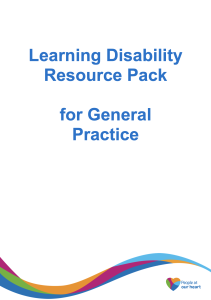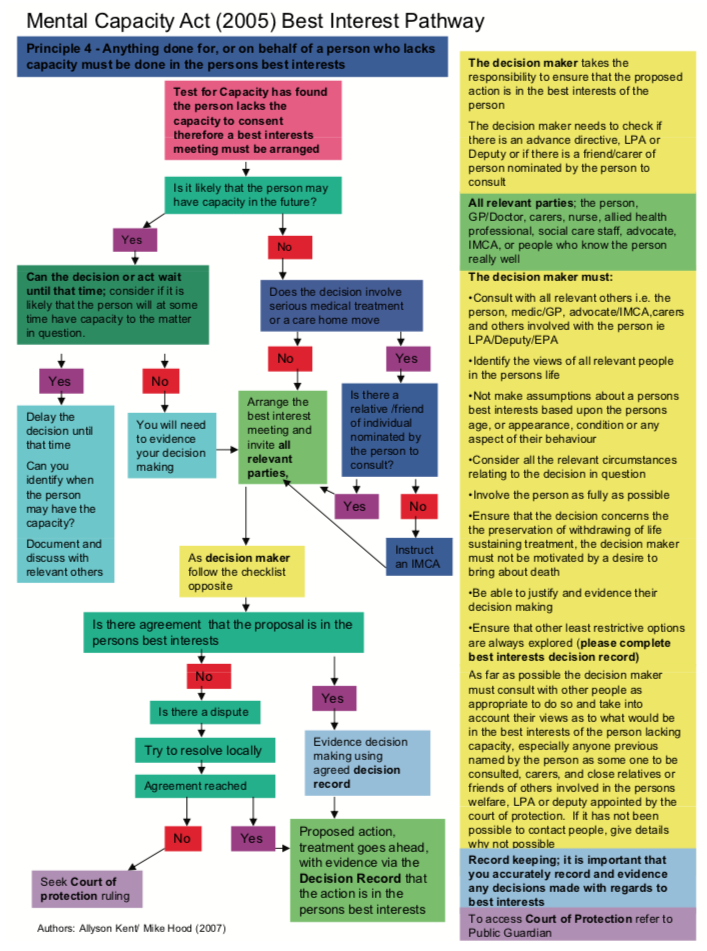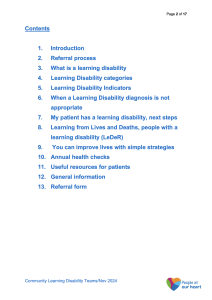Learning Disability Advice and Guidance for Primary Care Staff
Learning Disability Advice Email Address: CLDTGPadvice@covwarkpt.nhs.uk
The Community Learning Disability Team (CLDT) have set up an email address that can be used by practice based staff seeking advice related to working with a patient who has a learning disability.
It is for primary care colleagues to use to seek guidance, signposting etc if they have queries but don’t feel that a formal referral is required. T
The inbox is monitored by the Community LD Nurses on a regular basis CLDTGPadvice@covwarkpt.nhs.uk
Queries may include:
- Reasonable adjustments
- Mental capacity / best interest decisions
- STOMP/psychotropic medication.
Please note that this does not replace the usual referral mechanisms for CLDT
GP Learning Disabilities Resource Pack

For full document – click on link on right
COVID-19 Vaccination Related Promotional Materials
Click on images below to download documents

NHSE have also produced this 3 minute video where a person with LD poses some vaccine related questions to the national clinical director for LD:
Click on link or image below for link to video

Learning Disabilities Annual Health Checks
Follow this link for dedicated Gateway page
Learning Disability Service
Telephone number: 0300 131 2320 (Monday-Friday 09:00-17:00 excluding bank holidays)
Email: LDreferrals@covwarkpt.nhs.uk
Referral Criteria: Learning Disability Referral Service
The multidisciplinary teams offer services to adults with a learning disability, and comprise of Psychiatrists, Psychologists, Community Nurses, Occupational Therapist, Physiotherapists, Support Workers, speech and language therapy and aromatherapy.
Music and art therapy is also available in some areas.
The teams operate an open referral system, meaning that anyone can make a referral to them for support with their health care.
Please click on link on right for referral form
Health Facilitation and Acute Liaison
The team is also part of the community learning disability service. The team ensure that adults with learning disabilities receive the health care they need to live healthy lives and are treated as equal citizens within society. The team has identified nurses to work and liaise with the local acute hospitals covering University Hospitals of Coventry and Warwickshire, George Eliot Hospital, Warwick Hospital, Solihull Hospital, Good Hope Hospital and Heartlands Hospital. The nurses support people through hospital admissions.
Contact Details
Coventry and Rugby CLDT: Tel 02476 324380 Team manager: Mark French mark.french@covwarkpt.nhs.uk
North Warwickshire CLDT: Tel 02476 315867 Team manager: Martin Povey martin.povey@covwarkpt.nhs.uk
South Warwickshire CLDT: Tel 01926 317746 Team manager: Amy Crofts amy.crofts@covwarkpt.nhs.uk
Referrals via Learning Disability Referral Service 0300 131 2320
Learning disability categories
Learning Disabilities are categorised into four degrees of severity: mild, moderate, severe and profound. Psychometric testing, which scores an individual’s intelligence quotient, can assess this.
| Category of Learning Disability | IQ Range | Typical Abilities (Based on ICD-10) |
| Mild | 50 – 70 | Hold conversation.
Full independent in self-care. Practical domestic skills. Basic reading and writing. Many adults will be able to maintain good social relationships and employment. |
| Moderate | 35 – 50 | Limited language.
Need help with self-care. Simple practical work (with supervision). Usually fully mobile. Most adults will achieve a degree of independence and will require varying levels of support. |
| Severe | 20 – 35 | Use of words and gestures for basic needs.
Activities need to be supervised. Work only in very structured situations Movement problems common. Ongoing support / supervision required |
| Profound | Below 20 | Unable to understand requests.
Very limited communication. Little or no self-help skills. Usually incontinent with severe impairment to mobility. Will require support to fulfil all daily living skills. |
Identification of a learning disability
The following indicators may lead to identification of a learning disability in an individual.
The individual may be:
- unable to tell the time;
- unable to distinguish between different coins;
- unable to do simple arithmetic;
- unable to say how old they are or know their date of birth;
- have difficulty recognising numbers, particularly over 10;
- have difficulty reading simple words and sentences;
Which school did they attend? e.g. ‘special school’ – see lists below:
|
Solihull |
Coventry |
Warwickshire |
|
Forest Oak Hazel Oak Oaklands Merstone Reynolds Cross |
Alice Stevens Baginton Fields Hawkesbury Sherbourne Three Spires |
Brooke |
Where does the person live? e.g. sheltered accommodation.
What does the person do for a job? e.g. attends a day centre.
What is a learning disability?
Learning disability may be defined as a state of arrested global development, occurring pre-, peri- or post natally.
Some people with a learning disability may have an identifiable cause for their condition, for example genetic condition such as Down’s syndrome.
For many patients it is not possible to identify the primary cause of learning disability – the important factor to recognise is the functioning ability of the individual patient.
People with a learning disability present with a wide spectrum of care needs, ranging from the person who is totally dependant on others for all aspects of care, to individuals who, while appearing independent, have special health needs such as challenging behaviour, mental health problems or epilepsy.
A learning disability is not an illness. It is a permanent condition, but with the right kind of help many people can acquire practical and social skills, even if this may take them longer than usual.
Learning disability is nearly always present from birth, though this is sometimes not recognised until children fail to reach milestones in their development such as sitting or beginning to talk.
Like the rest of the population, people with learning disabilities have very diverse personalities and characteristics. People’s background and family circumstances will also vary and these, together with the nature of the degree of disability, will help to determine what it means for a particular person to have a learning disability.
The nature of people’s learning disability varies widely and will affect the kind of support that they may require. Someone with a learning disability finds it more difficult to understand new or complicated information. They also find it harder than other people to learn new skills. These may be practical things like tying shoelaces or social skills such as holding a conversation. Some people may not speak and need to find other ways of communicating with those around them. Some need help with everyday things like getting dressed or a cup to tea. Others will live quite independently with much less assistance.
Unlike mental illness, an impairment of mind cannot be reversed and therefore cannot be ‘cured’ because it results from damage to the brain or nervous system before, during or after birth.
It is important not to confuse learning disability with the following:
- Learning difficulty
- Mental illness
- Brain damage in adulthood
- Cerebralpalsyandepilepsy
- Specificscholasticproblems
- Learning disability does not include all those with a learning difficulty
Learning difficulty is a term used by some agencies in the content of special education to differentiate from the health needs of people with intellectual impairments (learning disabilities).
Mental Capacity

Best Interest Pathway

Constipation Information and Resource Pack
Click on image for full resource pack
Contents:
- Introduction
- Posters and Leaflets
- Bristol Stool Charts, Bowel Monitoring & Guides
- The Poo Song
- Bowel Health Awareness slide pack
- Links to other resources
- Acknowledgments

Useful Resources
- ‘Don’t Miss Out’ campaign resources
- Easy read information on a wide range of health topics
- EMIS set up guide for Annual Health Check Template
- RCGP Toolkit for Annual Health Checks
- Top 10 Reasonable Adjustments (Mencap Treat Me Well Campaign)
- New Learning Disabilities Oral Care Guidance
- Community Learning Disability Team Leaflet
- Learning Disabilities Resource Pack for General Practice
- My Maternity Book
- NHS Right Care Pathway – Diabetes
- Improving identification of people with a learning disability: guidance for general practice
- Easy read Health Action Plan Template
- Bowel Screening Leaflet Easy Read
- Easy Read Having a Smear
- Easy Guide to Breast Screening
- GP Health Check Leaflet
- Pre-Health Check Questionnaire
- Health Action Plan (CovWark) MEN
- Health Action Plan (CovWark) WOMEN
- Hospital Passport South Warwickshire NHS Foundation Trust
- Hospital Passport George Eliot Hospital
- LeDer Report 2019
- Confidential Inquiry into People with Learning Disabilities
- CWPT Learning disability GP resource repository
- Death By Indifference
- Easyhealth.org.uk/
- Mencap.org.uk
- Dying for a poo
Video Resources:
Sepsis information for family and carers of People with a Learning Disability
LeDeR Programme
Learning from lives and deaths – people with learning disabilities and autistic people (LeDeR)
LeDeR is a national service improvement programme looking at the lives and deaths of people with a learning disability and autistic people.
In Coventry and Warwickshire, the programme is run by the Integrated Care Board and brings together partners in health and social care across the Integrated Care System, with the aims to improve access, experience and outcomes of care
Established in 2017 and funded by NHS England and NHS Improvement, LeDeR works to:
- Improve care for people with a learning disability and autistic people
- Reduce health inequalities for people with a learning disability and autistic people
- Prevent people with a learning disability and autistic people from early deaths
People with a learning disability die on average significantly earlier than the wider population
To understand why this is happening, we undertake a formal review every time we are notified that a person with a learning disability or autism has died
As part of the review, we look at the health and social care services the person was receiving, we talk to the individuals’ loved ones and carers, and we review care notes
This process helps us identify best practice that can be shared
We are keen to have representation from Primary Care in our LeDeR Governance Group so if you would be interested, or for more information about the programme, please contact cwicb.ledercwicb@nhs.net.
Reporting the death of someone with a learning disability or an autistic person
- Anyone can notify the LeDeR programme of the death of a person with a learning disability or an autistic person and a review will then be carried out
- You do not need anyone’s permission to report the death
- You can report a death of someone who:
- Was autistic and was aged 18 or over or
- Had a learning disability and was aged 18 or over
To report a death, please follow this link: leder.nhs.uk/report.
The form will take about 15 minutes to complete. When reporting the death please include as much detail as possible in the notification
This form will include:
- Details of the deceased
- Details of their known NOK
- Their GP details
- The circumstances around their death
- Your details
- Your relationship with the deceased
Since July 2022 the LeDeR Programme no longer reviews the death of a child or young person with a learning disability or diagnosis of autism
To report the death of a child or young person under 18 years of age please visit Child Death Review
The GP Role within LeDeR
Click on PDF for download with working links

Coventry Guidance 

Signposting
Grapevine

Grapevine’s Help and Connect – helps all kinds of people experiencing isolation, poverty and disadvantage in Coventry and Warwickshire.
- Connecting – building community connections
- The Health Team – improving health and wellbeing of people with learning disabilities
- Safeside – supporting people to spot issues and protect themselves (hate crime, exploitation, grooming, mate crime)
- Connect to work – build resilience and fulfil potential (job and volunteering opportunities) supported for up to 12 months
Contact: Grapevine (Coventry and Warwickshire) Ltd, 123 Upper Spon Street, Spon End, Coventry CV1 3BQ Tel: 024 7663 1040.
Trident Reach
A community based preventative support service for people with learning disabilities aged 18+.
A registered care and support charity offering services to just over 5,000 people within the Midlands. These services include supporting people within registered care, domiciliary care, people with learning difficulties, those with mental health issues, young people at risk, older people, BME groups, people at risk of being homeless and those fleeing domestic abuse.
The service consists of an outcome based floating support service for a period up to 24 months, a drop-in service offering advice, guidance and signposting or low level short term, targeted support to address specific issues and emergency intervention support in times of crisis.
Support is provided on a one-to-one basis, peer support or group settings.
Contact: Room 6, Koco Community Resource Centre, Arches Industrial Estate, Spon End, Coventry CV1 3JQ Tel: 02476 675 752
Web: coventrysupport@tridentreach.org.uk Email: nbaker@grapevinecovandwarks.org
Rugby & South Warwickshire Guidance 

Warwickshire County Council commissions a support service for people with LD in Nuneaton, Atherstone and Rugby from a provider called ISS, which is accessible to all, without the need for social care eligibility/assessment.
The service offers free information, advice and signposting as well as a range of activities aimed at promoting healthy lifestyles, community engagement, learning and work.
To access the hub service you must be 18 years old or a carer of someone with a Learning Disability who is 18 years old or older.
For further information see below
Click on this link for Rugby information


Signposting
New Directions
We are a vibrant, well established local charity, supporting people with a diverse range of needs including learning and physical disabilities.
Based in Rugby, Warwickshire, we provide support that meets the personal requirements of the individuals we support; when, where and how they need it.
Support to understand and sign your easy read tenancy and housing management contract
Help to complete your housing benefit application
Assist you with managing your expenditure to ensure that you are able to pay your utility bills, while living your life.
Support you to be truly involved in co-regulation
Your needs are met when it is convenient to you
It provides supported living accommodation for people with a wide range of needs including learning and physical disabled people.
We can support you to run your own home to the best of your ability, including managing your money, preparing a meal or cleaning your home.
We offer support within your home which can be anything from as little as 1 hour per week up to 24 hours a day.
We can also support you in your local community. Our staff can be there for you when you want to go shopping or take part in a leisure activity.
We believe in providing high quality, good value services which are responsive to your changing needs,
We tailor your package to your assessed needs and wishes.
Your needs are met when it convenient to you.
We have skilled and highly trained staff who promote independence and opportunities to learn new skills.
Milner House is our pioneering, fully adapted, modern 3 bedroomed respite home away from home. You can come and stay with us for a short or longer stay. The experienced staff work alongside you to learn new skills, become more independent, take on new opportunities and make new friends.
If you would like more information on any of these services then please contact:
Milner House: 01788 878914 cpayne@newdirectionsrugby.org.uk






Leave feedback
You must be logged in to post a comment.